Sea change See change
Poet. Climate change. Environmentalist. Scientist. Carbon economy. (Ex-)soldier. Renewables. Conservationist. Fishing quota. Artist. Sustainability. Writer. Everyday words susceptible to our own interpretation, predisposition and characterisation. Words that can be polarising and divisive. So what happens when you mix them with a few associated ingredients? On the one hand there is the potential for an explosive mix and on the other an exchange of ideas.
The Cape Farewell Foundation is the catalyst that brings these ingredients and the mixing bowl together. I run the mixing bowl. The mixing bowl or Swan LK 243 is a67 foot 113 year old ex herring drifter operated by The Swan Trust. In the early 1900s she was one of thousands of boats following the shoals of herring. Then she was one of the most efficient fishing vessels afloat but her time as a herring drifter was short lived. The decline of the industry was predicated by war and changing markets or was it overfishing? Take your pick and argue the most significant factor. It will probably fit with your predisposition of those opening words. It will probably reflect your view on the multimillion pound pelagic fishing industry.
For the last 3 weeks “Swan” has been an expedition ship for an eclectic gathering of a diverse range of views and interests but all linked through a common thread of trying to understand and portray the impact of climate change on the maritime environment and communities of, in this case, The Northern Isles. Aboard have been, in the main, non-sailors but still forced to embrace aspects of living and working on an old sailing boat. There is the physical work of hoisting sail using techniques that our forefathers would instantly recognise; there is the “Swan Shuffle”, a close quarter dance around shipmates and their gear in our less than salubrious converted fish hold, where we redefine concepts of privacy and community living in what an estate agent would describe as cosy and compact living space. Being shipmates is a special bond. It’s a committed relationship, its about ship and people. It’s not about individual aspiration its all about community and when the headsail needs changing it’s not an option it’s a necessity. Supper won’t be a “take away” because we are tired. Supper will be because one of those tied shipmates makes it. Sailing a vessel like Swan is about belonging. You join a maritime community where there may be a hierarchy between skipper and cabin boy but as importantly there is an interdependence and reliance which are essential prerequisites to not only success but to survival. That survival is neither some testosterone rich fired escape from a death defying adventure nor is it some health and safety strap line. It’s a practical daily occurrence that embraces the routine of living and working; it’s about a cup of tea at 3 o’clock in the morning; it’s about safely lowering or hauling sails aloft, it’s about supporting or enduring the nadir of seasickness. Critically it’s about how we relate to each other and our world. It’s about your shipmates and your environment.
Then there is the Swan herself. To attain the relationship of shipmate is more than communal living on a boat, its living with a boat. Its sharing her life and purpose and meaning; it’s about understanding her and responding. It’s about considering her and meeting her needs and in return you feel her beating heart and soul, neglect her and you neglect yourself. Take care of the ship and she will take care of you, she will return that love unconditionally. Nourish her and tenfold she will return rich rewards.. Joining the ship’s company is to live one of Hahn’s maxims that in the journey of life we should aspire to be crew not passengers. The necessities and luxuries of life take on new value and meaning. The necessity of a shower is trumped by the necessity of ensuring the bilge pump works or that a worn lashing is renewed before it fails with devastating consequences. The luxury of an hour in bed gives way to the necessity of catching the tide. Opportunity to reappraise values abound and for those whose immerse themselves in the life of the vessel and sea there is a rich reward of not just observing the environment but of joining it. New meanings, perspectives and insights are there for the taking. Predispositions fall by the way side and a new clearer reality dominates the horizon and informs actions and thoughts. As we take in and adjust to these new values so our notion of value changes. If you truly embrace the boat and if you were off shore for any sustained length of time then the value of the kitchen roll isn’t £1.50 from the supermarket, its that’s there is one roll and when its gone, ITS GONE. Discussions on sustainability and renewable energy options conducted whilst excess lights burn in the fo’c’sle reveal a mismatch between ideal and practice. It’s not just that those lights will drain batteries that are then recharged by running the generator and burning fuel, its that that fuel is itself finite and when the fuel tank is empty, ITS EMPTY.
But in order to experience this revelation you must first connect with this reality. You must immerse yourself in it and let go the security and clutter of the comforts of the shore which we typically have come to ascribed as necessity but are in fact some artificial world we create and inhabit. Its easy on an ocean passage because when the last warp is cast off and there is a few thousand miles of sailing and uncertainty ahead, then your reality quickly readjusts and life’s priorities reorder without effort. Deprived of distractions of man made importance and the absence of e-connectivity, we reengage in our immediate practicality through necessity. It’s harder on a coastal voyage because the trappings of shore side necessity are often still within grasp if we retain them as a priority. Their retention might be critical but so too can they be a distraction and obstacle to emersion in the very essence of what we have come to experience and learn from and about. Those events and connections so often skew our priorities. E-connectivity might provide an instant connection with followers or supporters but connecting with your environment, your shipmates and your ship should assume an immediate importance even urgency of experience and opportunity. Jumping on the internet to connect with the unseen helps keep your new surround unseen and so dilutes the learning and experience.
I don’t suggest that it’s easy to combine this level of emersion with the demands of individual project and don’t envy those who have to do so. It is, of course, a matter of degree, balance and therefore judgement with no absolute or even wrong let alone right answer. It is however my observation that the nature of the experience and therefore learning and journeying is changed and I would suggest enhanced as the observer becomes a participant and it is as a participant that we gain most.
Back to Hahn, who cautions the traditional role of teacher and student and advocates setting the conditions to learn from each other. To those who cautioned me about the challenges of the eclectic mix; thank you, but the rewards outstripped the challenges by a margin. Whether the challenges or thoughts of an ex-soldier added to the enrichment is another question but the abiding memory and lasting benefit of this last 3 weeks has been rewarding and fulfilling with, I hope, enduring benefit and perspectives as we shipmates continue to reflect on shared interests and gain new understandings from our shared experience.


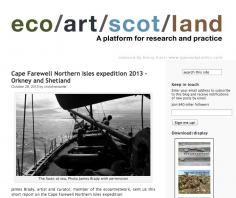
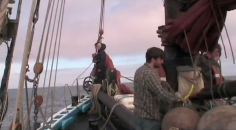
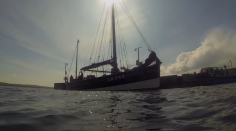
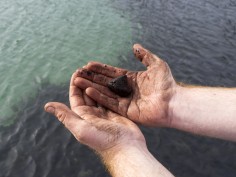
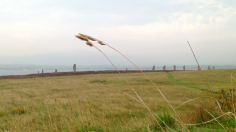
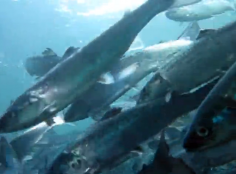
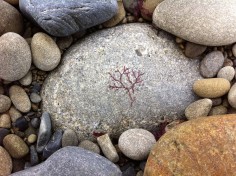
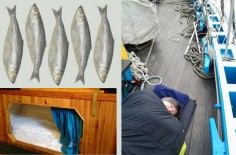
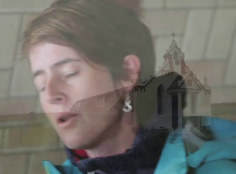
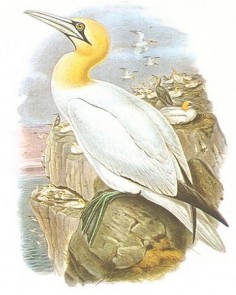
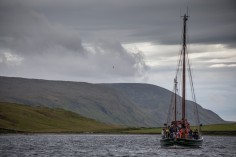
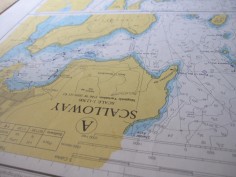






No Comments